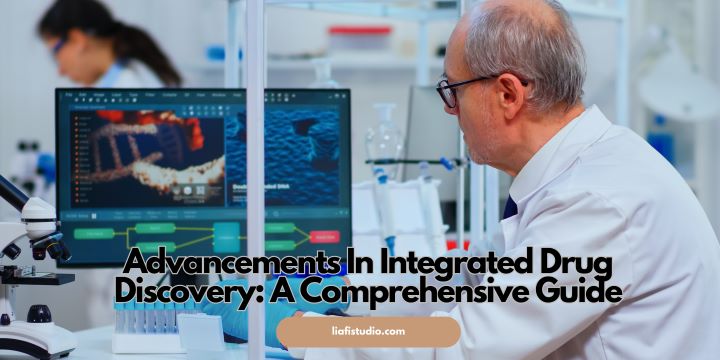Table of Contents
- What Is Integrated Drug Discovery?
- Key Components of Drug Discovery
- Advantages of Integrated Drug Discovery
- Future Trends in Drug Discovery
- The Role of Artificial Intelligence in Integrated Drug Discovery
- How to Get Started
- Conclusion
What Is Integrated Drug Discovery?
Integrated Drug Discovery (IDD) represents a revolutionary approach to pharmaceutical development that unites the various stages of drug research into a cohesive and streamlined program. From early-stage research to late-stage development, the goal of IDD is to enhance efficiency, minimize duplicative efforts, and ultimately accelerate the time required to bring new drugs to market. Companies that specialize in integrated drug discovery employ a combination of diverse expertise and state-of-the-art technologies to achieve their objectives effectively, offering a significant competitive edge in the pharmaceutical world. The integrated approach amalgamates various scientific disciplines, such as medicinal chemistry, biology, pharmacology, and toxicology, within a seamless workflow. By fostering collaboration across these fields, researchers can more effectively identify and optimize drug candidates. This holistic strategy increases the likelihood of successful development, mitigating risks and improving the quality of drug candidates throughout the development pipeline.
Key Components of Drug Discovery
Drug discovery involves identifying a disease-causing biological molecule, often a protein, and validating its therapeutic effect. Lead compound identification involves finding compounds that interact effectively with the validated target, often using high-throughput screening methods and advanced computational techniques. Optimization and preclinical development aim to enhance these compounds’ chemical properties, improving efficacy, reducing toxicity, and exhibiting favorable pharmacokinetic and pharmacodynamic profiles. Preclinical development involves rigorous laboratory tests and animal studies to evaluate safety and effectiveness. Clinical trials, conducted in phases, test the drug’s safety, efficacy, and optimal dosages in humans. Regulatory approval from bodies like the FDA is sought before the drug can be marketed, ensuring it meets safety, efficacy, and quality standards.
Advantages of Integrated Drug Discovery
Integrated Drug Discovery (IDD) offers several advantages, including increased efficiency, cost-effectiveness, enhanced collaboration, and faster time to market. By integrating various stages of drug development, the process becomes streamlined, minimizing delays and redundancies. This leads to faster decision-making and a more cohesive progression from target identification to clinical trials. IDD also reduces overall development costs by optimizing resource use and avoiding unnecessary expenses. It fosters an environment where experts from multiple disciplines collaborate extensively, breaking down silos and driving collective progress. This accelerates the
time to market, benefiting patients and providing a competitive advantage in the pharmaceutical industry.
Future Trends in Drug Discovery
The future of IDD is poised to benefit from cutting-edge technological advancements. Artificial intelligence (AI) and machine learning (ML) are already revolutionizing how researchers identify and optimize lead compounds. These technologies enable the analysis of vast datasets to predict the most promising drug candidates with unprecedented speed and accuracy. Personalized medicine is another dynamic trend shaping the future of drug discovery. By tailoring treatments to an individual’s genetic profile, personalized medicine aims to increase the efficacy and reduce the side effects of therapies. These innovations promise to streamline the drug discovery process further, making it more efficient and effective.
The Role of Artificial Intelligence in Integrated Drug Discovery
AI is quickly changing the field of integrated drug discovery (IDD). Utilizing AI enables researchers to analyze extensive data in a more efficient and precise manner than previously possible. AI algorithms can recognize possible drug options, anticipate how they will interact with biological targets, and improve their chemical structures to improve effectiveness and decrease side effects. Machine learning models play a crucial role in recognizing patterns and forecasting results in intricate datasets, which is crucial for drug development. AI-powered platforms also allow for the virtual screening of millions of compounds, significantly speeding up the early phases of drug discovery. Moreover, AI can help in the creation and analysis of clinical trials, guaranteeing that the most effective treatments move forward successfully. Incorporating AI into IDD not only accelerates drug discovery but also enhances the chances of success, making it an essential element in the future of pharmaceutical advancement.
How to Get Started
If you’re eager to embark on the journey of drug discovery, partnering with an experienced research organization is a game-changer. Such organizations bring to the table a wealth of expertise, state-of-the-art resources, and a streamlined approach that can fast-track your projects. From initial target identification to regulatory submission, these partners guide you through each stage, ensuring your program is positioned for success. For more insights into rapid advancements in the field, consider reading about how pharmaceutical companies are racing to develop antiviral treatments in response to global health emergencies. Learn how pharma companies are sprinting to create antiviral pills, illustrating the innovative and fast-paced world of modern drug discovery.
Conclusion
Advancements in integrated drug discovery (IDD) represent a paradigm shift in pharmaceutical development, streamlining the process and enhancing collaboration. By unifying stages from target identification to clinical trials, IDD improves efficiency, reduces costs, and accelerates development. Leveraging diverse scientific disciplines and cutting-edge technologies fosters innovation and enhances drug quality, benefiting patients and the industry. The integration of AI, machine learning, and personalized medicine promises even more transformative progress. Embracing technological innovations and collaboration will shape the future of drug discovery, delivering therapies faster and more efficiently.




